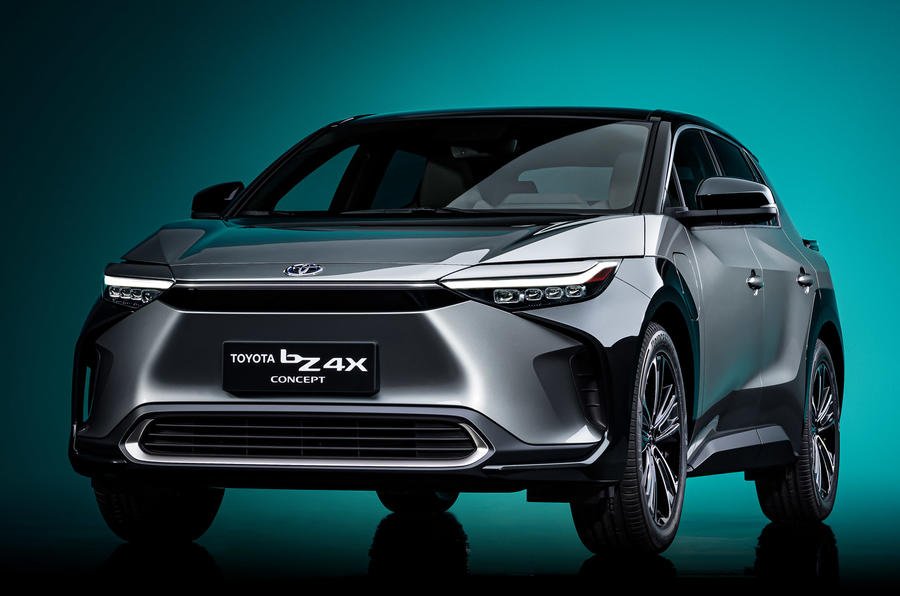Toyota bZ4X concept is brand's first bespoke electric car

The forward-looking bZ4X concept provides a long-awaited preview of Toyota's first production battery-electric car, which will go on sale in the middle of next year.
The 'bZ' element of its name refers to the Japanese brand's 'Beyond Zero' electrification strategy, through which it will launch at least 15 pure-electric vehicles by 2025, including seven that use the bZ moniker.
Spearheading this roll-out, the bZ4X will be the first model to use the new e-TNGA electric vehicle architecture developed in collaboration with Subaru, whose own first e-TNGA-based EV will be a Forester-sized SUV.
The defining characteristics of the platform include short overhangs and a long wheelbase, which is said to provide a "spacious and open cabin". In fact, Toyota says rear leg room is comparable to the near-900mm offered by Lexus's flagship LS luxury saloon. Here, the platform underpins a four-wheel-drive crossover (hence the '4X' suffix), which is claimed to major on comfort, connectivity and openness.
Heavily angled styling cues, chunky black wheel-arch trim, a familiar silhouette and contrasting roof hint at the influence of the strong- selling RAV4 SUV, which has recently been made available with a plug-in hybrid powertrain. However, various characteristics, including an all-new front-end design, point to a different design language for bZ-badged EVs.
In place of a conventional grille, a narrow black strip houses sensors for autonomous driving features, while sharply styled headlights and sculpted air channels are part of Toyota's new "hammerhead" look, which aims to generate "a new attitude and road presence".
The cabin, shown in what appears to be nearly production-ready guise, has been designed primarily to give the driver "a sense of direct connection to the road and to important information". The instrument panel is mounted low for improved forward visibility and to minimise distraction. The large central display, wide centre console and textured dashboard can be expected to feature on the production car.
Toyota chief engineer Koji Toyoshima explained the philosophy behind the new-look cabin design: "Our target customer is someone who places importance on time spent together with family and friends. When they want to enjoy such times, Toyota's bZ4X concept can serve as a hub for them."
Technical details of the dual-motor electric powertrain remain largely under wraps, but the system is said to draw on Toyota's 20-plus years of offering electrified powertrains, and to possess "class-leading efficiency and a very competitive driving range". With power sent to all four wheels, the bZ4X is said to deliver genuine off-road capability, as well as "peace of mind" in all on-road situations.
The SUV's range is optimised courtesy of an on-board solar charging system that helps to ensure colder weather has minimal impact on usability – a noted drawback of conventional battery tech.
Like the radical LF-Z concept shown by sibling brand Lexus recently, the bZ4X uses an innovative steer-by-wire system, which removes the mechanical link between the steering wheel and front axle. Toyota claims this enhances control while minimising the directional influence of rough surfaces and braking.
